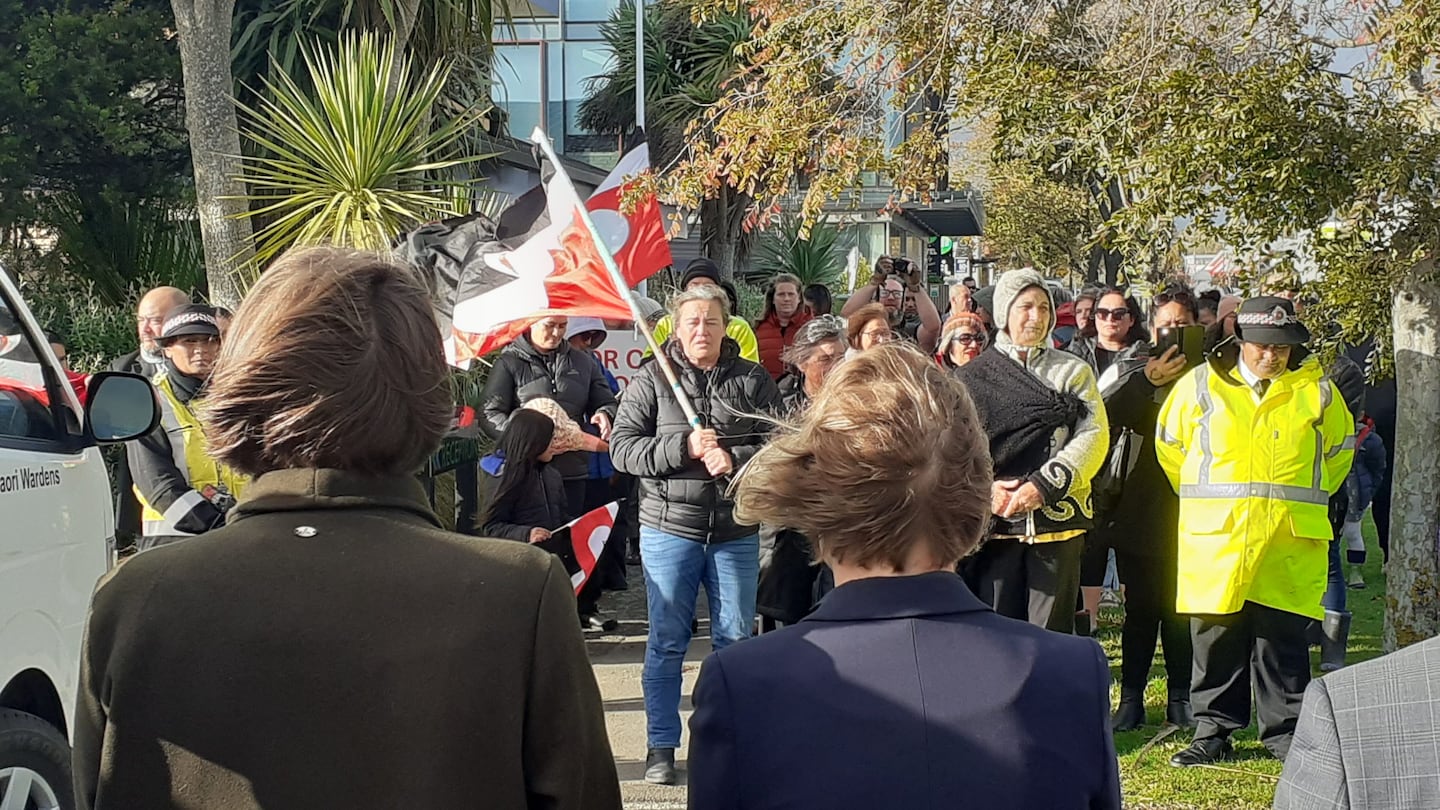A councillor says the instruction for councils to rescind decisions on having Māori seats – or hold binding public polls – is an attempt to “diminish Māori representation”.
Ruapehu District Māori Ward councillor Fiona Kahukura Hadley-Chase says more than 60% of the country’s councils have voted to have Māori Wards and constituencies, making Government steps to undo those decisions “a backward move”.
“This government is saying Māori are getting too clever, too powerful, too well represented, so let’s do something that weakens that because they know we’re a force to be reckoned with once we engage at the level that they require.”
Hadley-Chase campaigned for Māori wards at Horizons Regional Council and Horowhenua, Manawatū, Stratford and Ruapehu district councils, all of which introduced Māori seats in time for the 2022 local body elections.
“We really wanted to engage and be represented. It was an opportunity for us to learn about the system that councils have.”
Forcing councils to go through another decision-making process retrospectively was time wasting, she said.
Councils who introduced Māori wards without holding a referendum must make a decision on whether to scrap or retain their Māori wards by September 6.
A council decision to keep its Māori seats would trigger a binding public poll during the 2025 local body elections, with the outcome effective from 2028.
“We’ve already established them, it’s obvious that we want them, so why are we going to waste our time asking our whānau do you want Māori wards?
“We do enough hui, it’s time now to get on and do the mahi.”
Māori had not been represented on the council in numbers that reflected the Māori population until Māori seats were established in 2022, Hadley-Chase said.
In the 2018 census 43.4% percent of people in the Ruapehu District identified themselves as Māori.
There had been about 100 councillors elected to the Ruapehu council since it was established 35 years ago.
“Only about three per cent of those have been Māori, whereas now we have four Māori on council, and that’s a fairer representation than ever before.”
The Ruapehu councils is made up of six councillors elected to a general ward and three to a Māori ward, as well as the mayor. Deputy mayor Viv Hoeta is Māori but was elected to a general ward.
Hadley-Chase said introducing Māori wards had changed the local government landscape in Ruapehu for the better, improving understanding of history and boosting the council’s engagement with Māori.
“We have been able to not only engage our people with council but engage the council with Māori, which they were floundering with. [Local iwi] Ngāti Rangi has been asking for a relationship agreement with the council for five years – we did that within the first three months.”
Hadley-Chase said she would travel the region with her kaumātua to encourage Māori to vote in Māori ward polls.
Local Government Minister Simeon Brown told Local Democracy Reporting that the Government’s changes were about restoring democracy.
“I am very pleased that restoring the right to local referendums on Māori wards is a commitment under both the ACT and NZ First coalition agreements.
“All three parties were clear before the election that reversing the previous Labour Government’s changes to local electoral law would be a priority.
Brown said it should be up to communities to determine whether to introduce Māori wards.
“Councils that have introduced Māori wards following referendums will be unaffected by these changes. All other councils will be required to holding referendums.
“Councils have responsibilities to consult with mana whenua on issues that affect them. Changes to Māori wards do not affect these responsibilities.”
LDR is local body journalism co-funded by RNZ and NZ On Air



